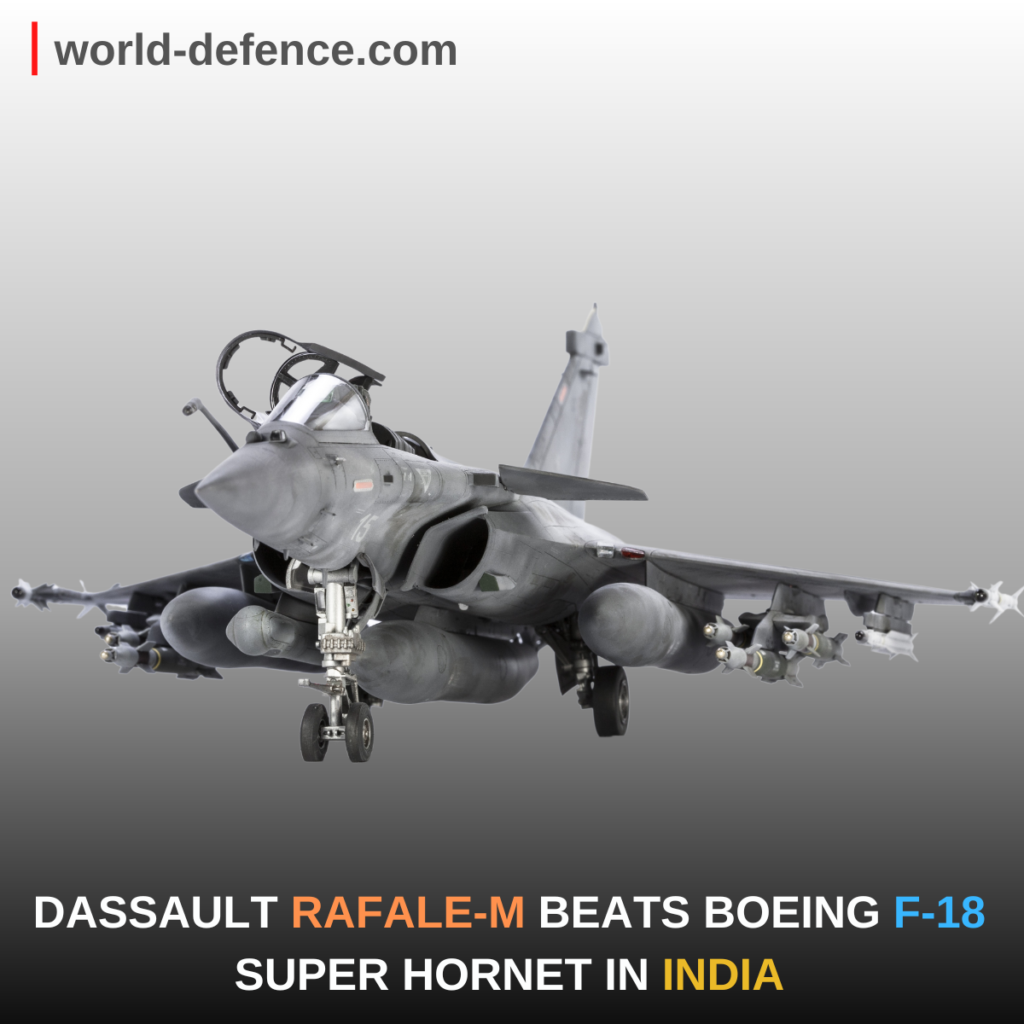NEW DELHI — The French naval fighter jet Rafale-M will be selected for deployment on the Indian aircraft carrier INS Vikrant. This is what an Indian reporter claims.
There were three naval fighters left on the finish line – the Russian Mikoyan MiG-29K fighter, the French Dassault Rafale-M fighter, and the American Boeing F/A-18 E/F Super Hornet fighter.
The Russian representative has no chance, the Indian sources claim, and for at least a year now. The two main candidates remain the French and the American fighter.
READ MORE: Russia warns India not to allow Japan to record the Su-30MKI engine and radar signatures.
The F/A-18 E/F Super Hornet was long thought to have a major advantage over its French competitor. First, in 2021, Boeing made serious progress. Engineers from the American company developed an Indian version, which for the first time took off from a short runway in the shape of a chance.
This was a significant achievement since the Indian aircraft carrier Vikrant has exactly such a design on its runway. Then, on June 15 of this year, the Super Hornet performed a short take-off and landing armed with two AGM-84 missiles.
Washington is trying to change Russian influence in the region. India is part of the Americans’ plans, but several obstacles are not in favour of Boeing. For example, production. The fact is that a large part of Indian arms production is built based on Russian standards.
This applies to heavy ground combat armoured vehicles as well as combat aircraft. After Russia, India is the second producer of the Su-30MKI fighter. In reality, the Su-30MKI is the backbone of the Indian Air Force.
On the other hand, France has more influence in India than the US. Washington will have to fight not only Russian influence but also French influence. France is more flexible in selling its weapons.
The US, for example, has a hard time giving industrial cooperation in military production. Washington has so far given no indication that India will be part of the F/A-18 E/F Super Hornet production, although Boeing has a presence in the strata.
New Delhi wants everything produced for the country’s military to be at least 50% domestically produced. “Made in India” is a government program that is strictly followed by the administration in New Delhi.
Thus France comes to the fore. Whether because of the war in Ukraine or because of the unsatisfactory performance of the MiG-29K, New Delhi is clearly unwilling to acquire the Russian fighter. India sees not only a way out of the unpleasant situation but also the acquisition of a very high-quality aircraft in the form of the Dassault Rafale-M.
Paris’s chances are high. India already flies 36 Rafale fighter jets, which reached their operational capability in 2022. In 2021, India bought 24 used French Mirage 2000 fighters. Seeing a chance to reposition the market, France agreed to help India in the production of helicopter engines.
READ MORE: The first flight of a new version of the F-35 fighter jet
Thus, India receives a transfer of French technology in a rather sensitive and labour-intensive field, solving the problems with the propulsion of the local Mk III light helicopter.
Another fact should be noted in favour of France. The fighter that India produces, the Tejas, follows the French Rafale design line. It is no secret that French know-how has been integrated into Indian aircraft as well as some French components and parts.
The purchase of the 36 French Rafales was a strategic move for New Delhi. These fighters should play a key role in eventually deterring the Chinese J-20, J-10, and J-11. The same applies to another “enemy at the gate” – Pakistan, which is intensively not only arming itself with Chinese fighter jets but also jointly producing its flagship JF-17.
However, there is still no official information that the Rafale-M is the winner of the protracted selection of a naval fighter. Sakshi Tiwari’s claim can be defined as speculative at this time, or at the very least, just an opinion. Boeing F/A-18 E/F Super Hornet is still on par with its French competitor.
The US continues to be a supplier of components and parts to the Indian arms industry. India was chosen by Lockheed Martin to build its plant for the production of wings for the F-16 fighters. It is assumed that the Indian plant will play a key role in the supply of spare parts worldwide for F-16 operators.
By all accounts, India will select a very high-quality fighter. The French and American fighters are highly competitive precisely because of their capabilities.
The question is no longer whether the combat aircraft for the Indian aircraft carrier will be combat-ready to meet the Sino-Pakistani threat, but which of the two countries will give more to the “Made in India” program.

